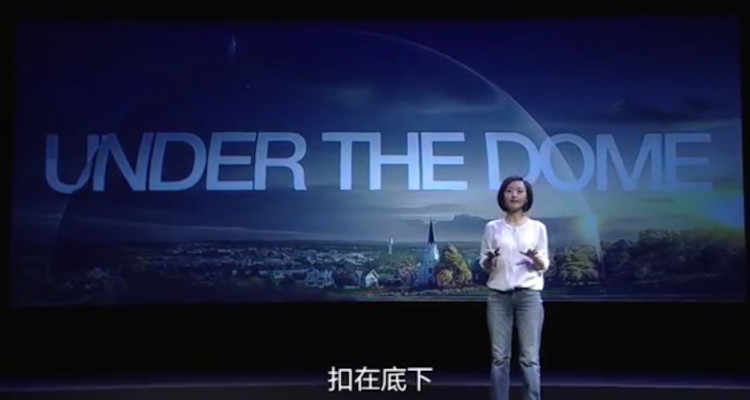This is our interview conclusion with Biyi and Yan of the Elephant Room on Queerness and Feminism in China. With over 80 articles they remain an invaluable resource for understanding culture, capitalism and social issues in China.
Read part 1 of our interview here.
Asia Art Tours: For Phenomenon like 小鮮肉 (“Little Fresh Meat”)and Boy’s Love, has the party recently moved to police or censor non- heteronormative presentations of maleness?
- And for 小鮮肉 and Boy’s Love, where does it’s popularity come from? Is it popular because it explores something new (something queer?) is it popular because it’s an identity that rebuts how maleness is typically presented? Or is it simply something different?
Elephant Room (Yan):Although with some overlap, popularity for 小鲜肉 and boy’s love came from different communities. The rise of 小鲜肉 are mainly caused by the growing fan culture in the past decade. The entertainment industry is tightly controlled by the capitals in China. Only those with guaranteed viewings could be invested to put into production. Having realized that young females have always been the major consumption power in the Chinese market, capitals have been actively producing more and more entertainment shows involving these young male celebrities.
 (Xiao Zhan was a 小鲜肉 celebrity. Fandom wars over his image became so intense, it eventually seeped into the capitalist process of celebrity-making and destroyed his career. Photo Credit: Elephant Room)
(Xiao Zhan was a 小鲜肉 celebrity. Fandom wars over his image became so intense, it eventually seeped into the capitalist process of celebrity-making and destroyed his career. Photo Credit: Elephant Room)
Those who are particularly interested in Boy’s Love are called 腐女 (or Fujoshi), which is an imported culture from Japan. Fujoshi culture has been popular not only in China or East Asia, but all around the world. There is a massive community in the Western countries as well, just look at the amount of BL themed fanfictions about Loki and Thor. The psychological explanation behind Fujoshi however is beyond our current understanding, perhaps a topic worth-exploring for our future articles!
Asia Art Tours: A03 in itself is absolutely fascinating. Could you explain what A03 is (or was?). Ultimately why it was censored? And for LGBTQ or creative communities in China, why is A03 and spaces that are collaborative, allow for experimentation and free so important, or different when compared to something like a BLUED or ALOHA… platforms that do offer spaces for queerness, but (unlike AO3) are profit-seeking.
Elephant Room(Yan): AO3 (Archive of Our Own) is a nonprofit platform for fanfiction and other fan-works contributed by users all around the world. A lot of Chinese users have been using this platform for creating and sharing fanfiction about entertainment works in China. It was censored because a group of fans of “小鲜肉” Xiao Zhan found a BL-themed fanfiction of Xiao Zhan was inappropriate and an insult to the idol. In order to seek justice for their beloved idol, the fans reported not only the fanfiction, but the platform itself to the Chinese authorities for “spreading inappropriate content”.
 (Fan Art from AO3 of Xiao Zhan as a woman. A03 was eventually censored and shut down in part from the ‘war’ between fans of Xiao Zhan. Photo Credit: Elephant Room)
(Fan Art from AO3 of Xiao Zhan as a woman. A03 was eventually censored and shut down in part from the ‘war’ between fans of Xiao Zhan. Photo Credit: Elephant Room)
AO3 and Blued/Aloha are very different not only in terms of profit seeking of not. The former is a content sharing platform while the later are social networking apps. AO3 is particularly important to creative communities because comparing with content sharing platforms based in China (e.g. Jinjiang 晋江 Literature City), it provides a space with much loosen regulation on LGBTQ and other subculture content. The users of AO3 and Blued are very different as well. Those who are interested in LGBTQ-related fanfiction are not necessarily LGBTQ themselves. On a wild guess, the Chinese authority is willing to provide a space for Blued/Aloha because they consider suppressing the social need for LGBTQ community a much bigger trouble to the society than suppressing a “hobby” of fans of creative works. Moreover, the fact that Blued and Aloha are both developed by Chinese companies means they are much more cooperative with the Chinese policies.
Asia Art Tours: Lastly, could you explain what 举报 (“Reporting”) is? How is it similar and different to #canceling someone on Twitter or Instagram ? And do you believe in the future we will see this tactic used in a myriad of unpredictable ways? Both in fan culture but perhaps also in activism culture?
Elephant Room (Yan): “Reporting” means reporting certain behavior/content/platform to the authorities for violating relevant rules/restrictions/laws. Unlike #canceling someone on social platforms, reporting means the person is not only expressing an attitude, but they wish the reported person to be punished or regulated by public power. Unfortunately, we believe this tactic is being used more and more often in the current society, sometimes as a way of seeking justice, sometimes just as a way of achieving personal benefit. (Yan)

(‘Marriage Material Stye’ is the newest Neoliberal process in China of gradually making love and Capitalism one and the same. Photo Credit – Elephant Room)
Asia Art Tours: What are some of the political or market forces that are causing women to try and transform themselves using metrics of Marriage- Material Style, or beauty bloggers in China? And are their any cultural (or subcultural) influences that propose different value systems outside of either patriarchy or beauty capitalism for women in China?
Elephant Room (Biyi): I don’t think there’s any political forces involved in these two cases. Women follow Marriage-Material Style because they want to marry well, and in today’s China, marriage is still considered the most important project for most women. It is more about culture rather than about politics. (Like the old Chinese saying goes, “干得好不如嫁得好, it is more important to marry well than to do well!”) In terms of beauty bloggers, they are triggered mainly by economic motives. Everyone wants to become influencers/KOLs nowadays, not only in China but globally.
I always remind myself to think about three things whenever I think about feminism in China: 1) The society’ patriarchy tradition 2) the “Women Lifts Half of the Sky” during modern Chinese Revolution 3) the rise of consumerism since economic reform. All of these factors play a role in shaping modern day Chinese women, who are diverse in ideology but also sharing some common traces.

(The Chinese documentary, ‘Under the Dome’, was the last (to our knowledge) mass-distributed film about pollution in China. With both climate change dialogue being suppressed in the US and China, what hope does the world have?)
Asia Art Tours: Though I didn’t see an article on the subject, I wanted to ask are there any cultural figures deeply connected to fighting climate change in contemporary China? And do you believe that global warming will become a topic younger Chinese citizens will become involved with in the years to come?
Elephant Room (Yan): Unfortunately, no. I am ashamed to admit but Chinese citizens are more concerned with their own personal well beings that they put little thoughts into what consequences their lifestyle could do to this planet. There is just little public education on this matter. Even worse, the tightening control on all NGO and local activism activities means local level actions has little space to grow into something big. Unless the government decides to react to this matter from top-down, the Chinese citizens would never consider this as a personal responsibility as Western citizens in developed countries do.
 (Biyi and Yan, the founders of the Elephant Room. With over 80 articles they remain an invaluable resource for understanding culture, capitalism and social issues in China. Photo Credit – Elephant Room)
(Biyi and Yan, the founders of the Elephant Room. With over 80 articles they remain an invaluable resource for understanding culture, capitalism and social issues in China. Photo Credit – Elephant Room)
Asia Art Tours: Lastly, do you have any predictions on how any of the issues or contradictions we discussed today may evolve in the near term future in China?
Elephant Room (Biyi & Yan): We are afraid we are not prophets! All we could say is that, given the current situation of U.S-China relations and Covid-19, China’s domestic economy would face a lot of challenges in the near future. But in terms of how the government would manage or how the general public would react, we can only observe as we go.

